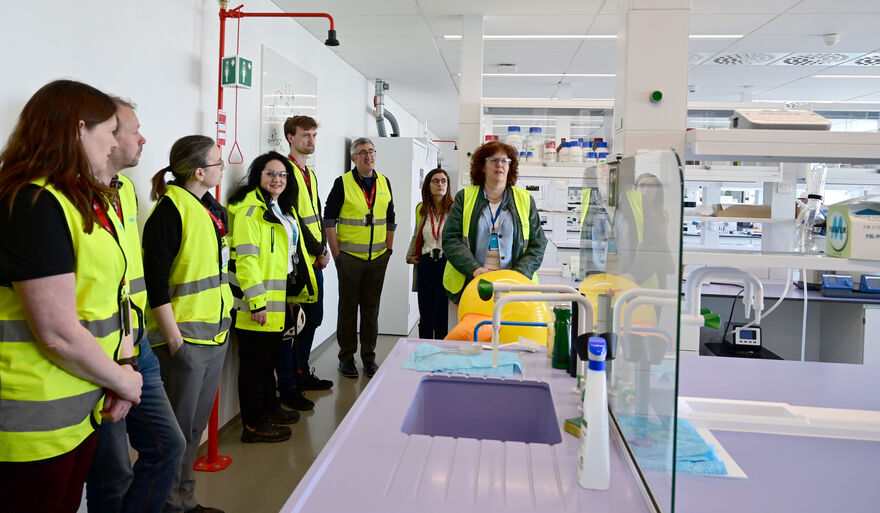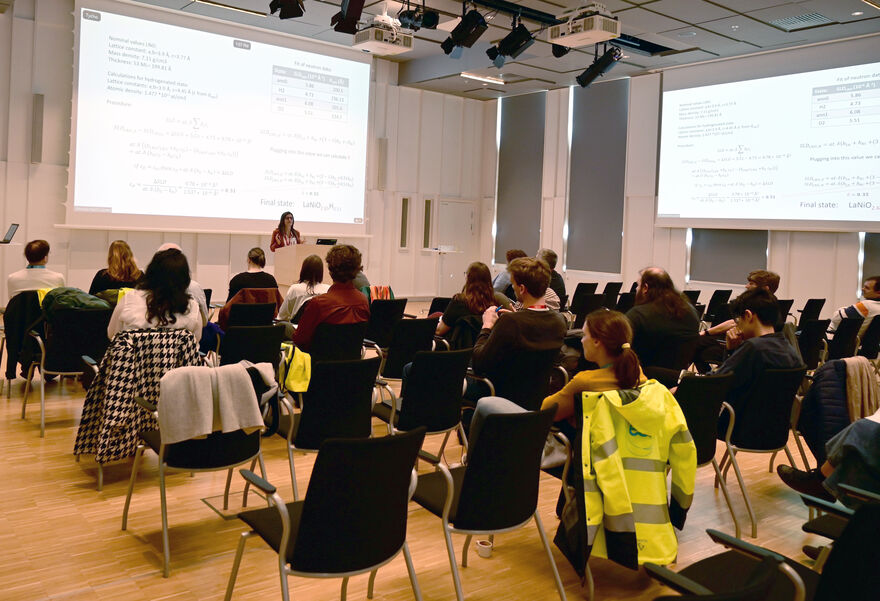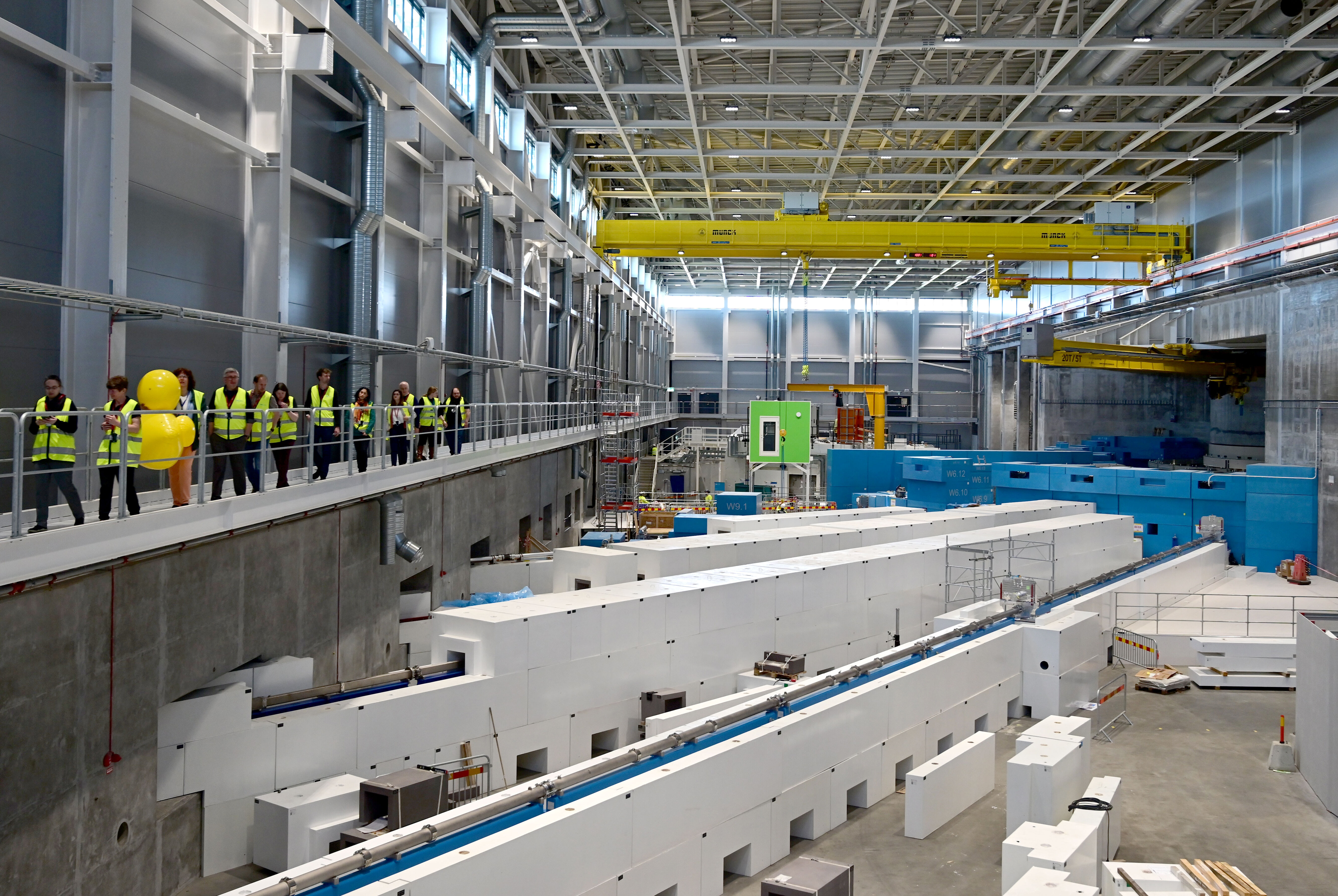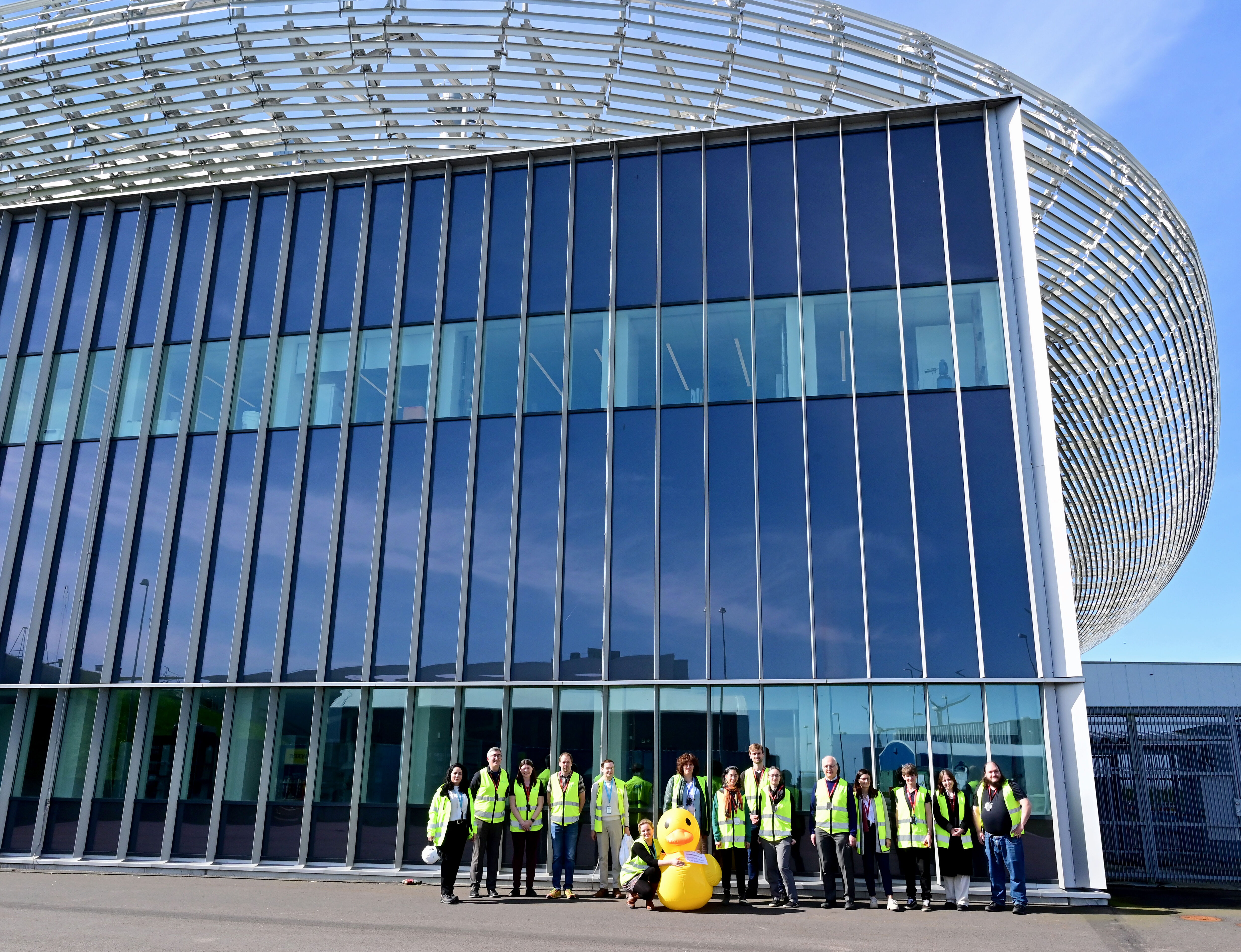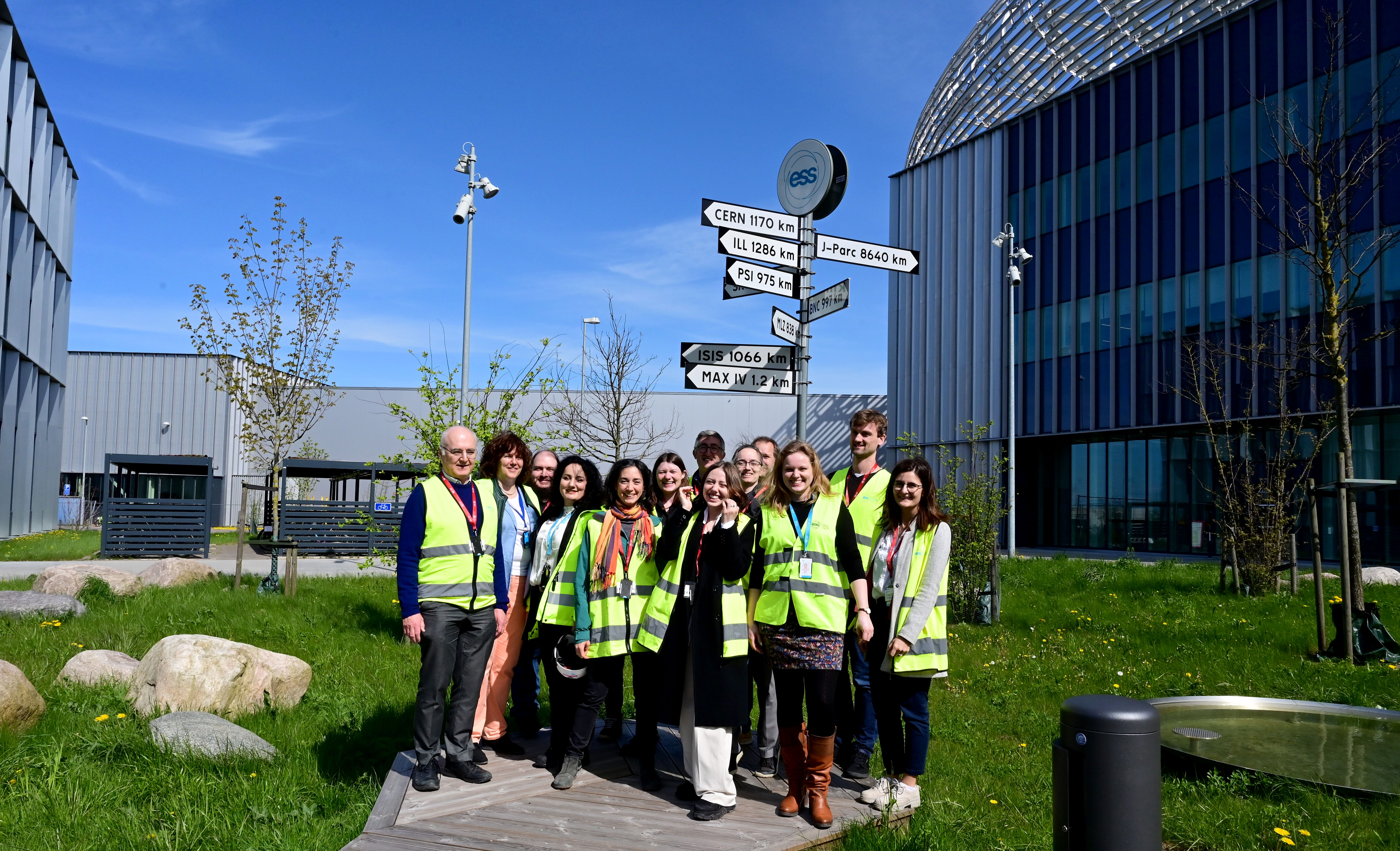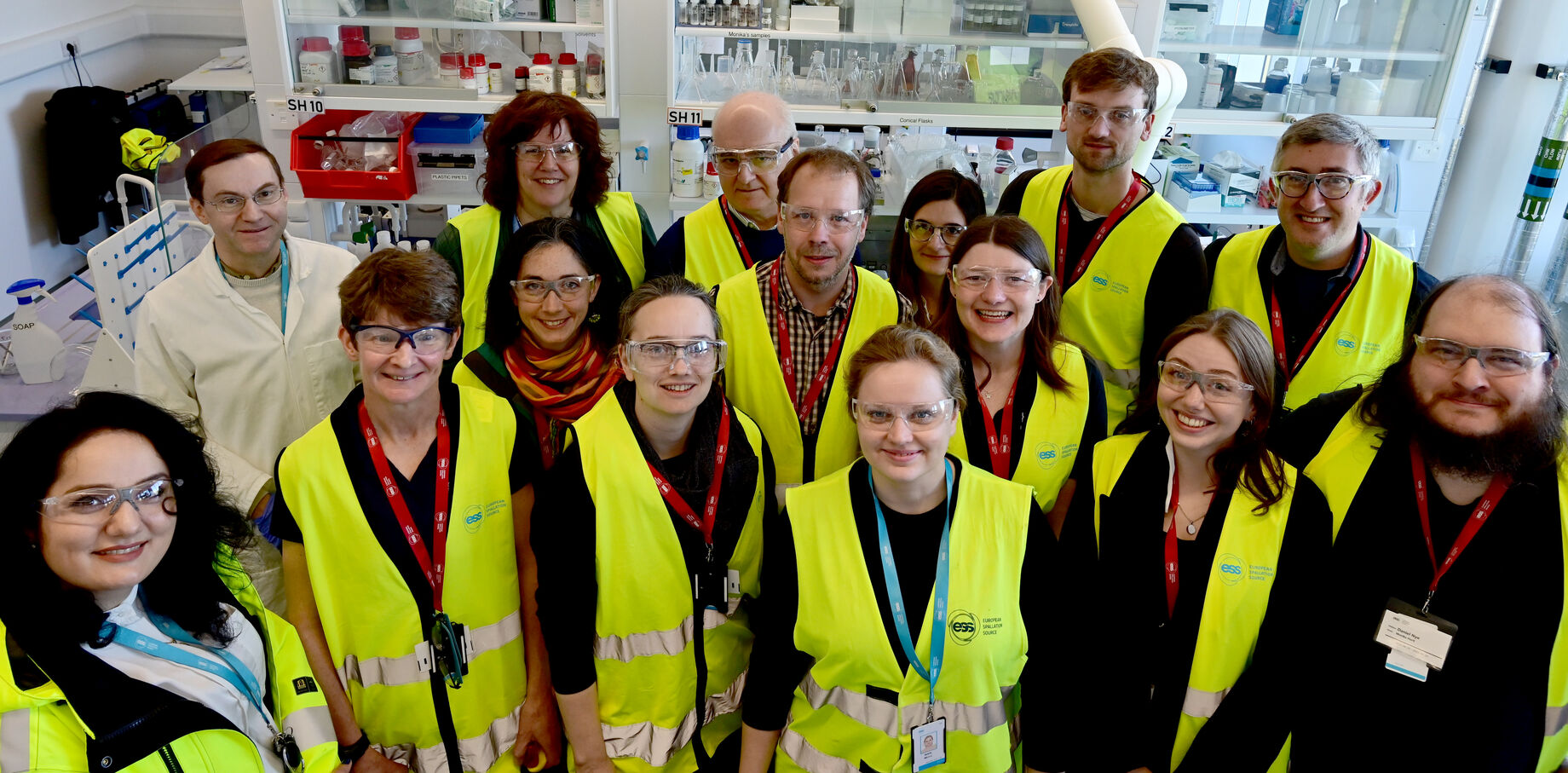
A Neutron Sources Support Laboratory Symposium held at ESS on April 29-30, 2024, successfully brought together experts from global neutron facilities to exchange knowledge and enhance user experience.
Over two days, the ESS Chemistry and Life Science Support (CLS) group – led by Monika Hartl - hosted a lab symposium with invited participants from other international neutron source laboratories. The main goal of the event was to exchange ideas and best practices regarding the running of user laboratories.
ESS has three laboratory buildings, which contain labs and workshops with the aim to support science at ESS in the areas of chemistry, soft matter and life science. This includes the sample handling laboratories, dedicated sample environment equipment and the deuteration and crystallisation effort.
Whilst some of these lab spaces are yet to be fitted and equipped, some of the ESS laboratories have been operational since 2021 and since then have been supporting the ESS construction project with chemical analysis and characterisation.
The idea for this type of symposium began as a collaboration between the ESS CLS Group and the ISIS Support Laboratory group at STFC. The first such symposium was held at ESS in 2022, marking the completion of the first ESS laboratories, equipped through In-Kind by the ISIS Support Laboratory group. This was followed by a second symposium at ISIS where members from laboratory teams from other facilities were also invited.
For this edition, the network of neutron sources support laboratories was extended to include Institute Laue-Langevin (ILL) in France, Australia's Nuclear Science and Technology Organisation (ANSTO), NIST Center for Neutron Research (NCNR) and the Spallation Neutron Source (SNS) in the US, Forschungszentrum Jülich and the Research Neutron Source Heinz Maier-Leibnitz (FRM II) in Germany.
The two-day symposium served as an opportunity for those who run support laboratories at neutron sources to discuss state-of-the-art support, new trends, challenges and solutions.
"The insights and expertise shared here are invaluable for us" said Monika Hartl, group Leader for CLS at ESS. "The exchange of know-how with our peers is crucial as we prepare to open ESS to the global neutron user community."
The symposium included a session of scientific talks, where participants showcased the impactful contributions from the user laboratories. The presentations covered a broad range of subjects, including the synthesis and analysis of novel materials, the exploration of sustainable practices in scientific research, and advancements in neutron instrumentation. The discussions spanned a variety of topics critical to the future of neutron science. Experts from the participating institutions shared insights into the latest advancements in neutron scattering techniques, innovative support laboratory practices, and pioneering research methodologies.
The next edition of the symposium will take place in 2025, likely at ILL.

























